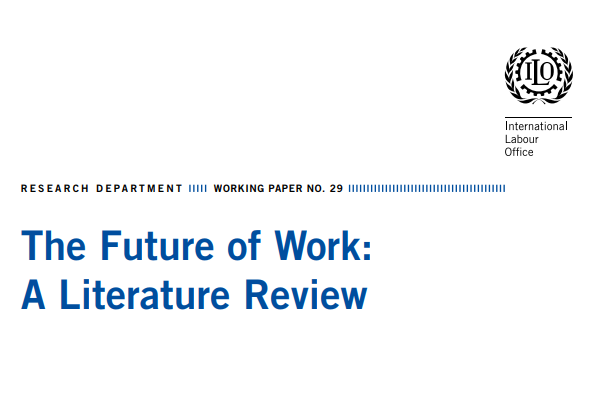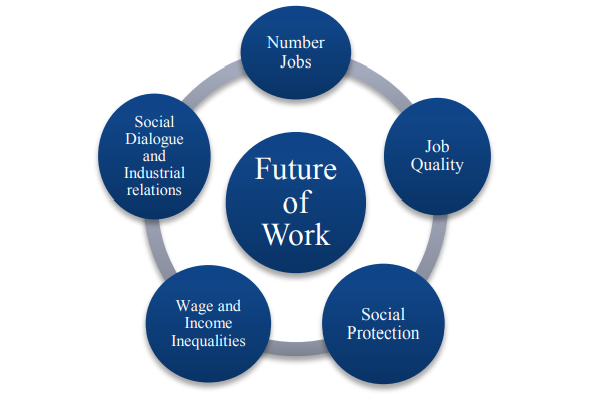El Futuro del Trabajo: Una Revisión Bibliográfica (16 Mayo 2018, Ginebra)

Traducir:
Posted by the ILO – On April 17th, 2018
The Future of Work: A Literature Review
An enormous amount of literature has emerged over the last few years in the context of the “Future of Work”. Academics, think tanks and policy makers have fueled rich discussions about how the future of work might look like and how we can shape it. Indeed, labour markets in developing and developed countries are likely to undergo major transformations in the next years and decades. However, despite a growing body of research in this area, there exists no universally accepted definition of what exactly the “Future of Work” encompasses and what the most relevant drivers are. Accordingly, there is a vast variety of themes and methods covered by the literature on the Future of Work. Few papers cut across a multidimensional analysis of the different potential drivers of change. This literature review provides the first systematic and synoptic overview of topics discussed under the umbrella of the “Future of Work”. It not only highlights the trends of the most important drivers as discussed in existing studies, it also defines what the expected outcomes of the future of work might be. The review first devises a structure based on key labour market dimensions and then categorizes findings from the literature conditioned on such dimensions. It also contains an assessment on the coverage of the studies on the future of work and perceived limitations and thematic gaps.
This literature review was conducted in the context of the preparation of the inception report for the ILO’s Global Commission on the Future of Work. The review was prepared by Thereza Balliester (University of Leeds) and Adam Elsheikhi (ILO).

This release is also available in the news section at the website of the ILO:
http://www.ilo.org/global/research/publications/working-papers/WCMS_625866/lang–en/index.htm

